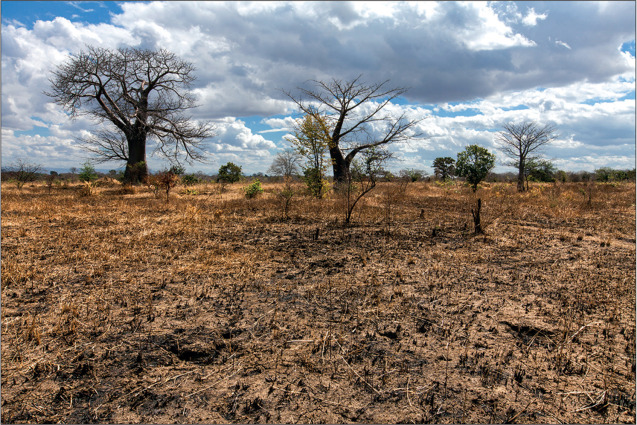
In the first eight days of July, abundant rainfall across various regions in India has not only bridged the rainfall deficit for the entire country but also exceeded the normal monsoon expectations, according to the India Meteorological Department (IMD). The cumulative rainfall during the monsoon season has reached 243.2 mm, which is 2% above the normal of 239.1 mm. However, there are significant regional variations in rainfall patterns.

The stunning Grossglockner High Alpine Road in Austria, known for its breathtaking views and the majestic Pasterze glacier, is experiencing the visible impacts of climate change. Herbert Hoegl and his wife, who have been visiting the area for two decades, have witnessed the significant retreat of the Pasterze glacier. What was once easily accessible for visitors is now 100-150 meters further away, highlighting the glacier's alarming melt.

Earth's average temperature has remained at a record high for the third day in a row, adding to a growing list of climate-change-driven extremes. The University of Maine's Climate Reanalyzer, which utilizes satellite data and computer simulations to assess global conditions, reported that the average global temperature reached 17.18 degrees Celsius (62.9 degrees Fahrenheit) on Wednesday. This matched the previous day's record, and both surpassed the record of 17.01 degrees Celsius (62.6 degrees Fahrenheit) set just two days earlier on Monday.

The Secretary-General of the United Nations, António Guterres, has issued a grave warning that "climate change is out of control" following an analysis indicating that the past week was the hottest on record. Unofficial data reveals that average global temperatures reached unprecedented levels, breaking records set just days earlier. Guterres emphasizes the urgency of taking immediate action, stating that further delays in implementing necessary measures will lead to catastrophic consequences.

Egypt has taken a significant step forward in its space program with the launch of Horus-2, a satellite aimed at monitoring climate change and addressing the growing water scarcity issues in the country. According to NASA's Earth Observatory, a mere 4 percent of Egypt's land is suitable for agriculture, and that number is steadily decreasing due to rapid urbanization accompanying population growth. To counter this trend and ensure food security, Egypt has been increasingly relying on satellite data for finding effective remedies.

The Climate Change Summit is set to make its return to Bucharest, Romania, in October for its second edition. Positioned as the largest event in Central and Eastern Europe dedicated to climate change, the summit aims to bring together influential leaders in climate innovation, environmental policy, researchers, entrepreneurs, and government officials in pursuit of actionable solutions for a sustainable future.

Antonio Guterres, the Secretary-General of the United Nations Security Council, has issued a grave warning about the escalating threat of rising sea levels, highlighting the possibility of a mass exodus due to the impacts of climate change. Alexandria, Egypt's second-largest city with a population of 5.5 million, is particularly vulnerable to this peril. Increasingly violent winter storms and flash floods pose a significant danger to the city's seafront. Recognizing the urgency of the situation, Alexandria has been listed by UNESCO as one of several Mediterranean cities in need of tsunami preparedness by 2030, prompting a race against time for solutions.

Antonio Guterres, the Secretary-General of the United Nations Security Council, has warned member states about the escalating threat of rising sea levels, describing it as potentially leading to a mass exodus of populations on an unprecedented scale. Alexandria, Egypt's second-largest city with a population of 5.5 million, is particularly vulnerable to this peril. Violent winter storms and flash floods are becoming more frequent, endangering the city's seafront. In response to this imminent danger, Alexandria, listed by UNESCO as one of several Mediterranean cities needing tsunami preparedness by 2030, is urgently seeking solutions.

UN Deputy Secretary-General Amina Mohammed has praised China's significant efforts in tackling climate change and its commitment to multilateralism. As one of the world's largest economies and a major investor in renewables, China has the opportunity to set an example of a new development pathway that decouples growth from emissions. With over half of the world's new renewables projected to be in China, the country's investments in renewable energy and its role in global initiatives like the Kunming Montreal Global Biodiversity Framework demonstrate its commitment to reversing biodiversity loss and protecting nature. China's contributions have played a crucial part in achieving milestones such as the adoption of a new UN treaty to protect marine biodiversity and the expected overtaking of global solar investment over oil production for the first time.

The World Meteorological Organization (WMO) has warned that India may experience decreased rainfall conditions this year due to a potential El Nino event. The warming effect of El Nino, combined with greenhouse gas emissions, is expected to contribute to erratic rainfall patterns. The WMO advises Indian farmers not to wait for the official declaration of an El Nino but to proactively adapt to the possibility. El Nino occurs when sea surface temperatures in the central and eastern equatorial Pacific Ocean rise by 0.5 degrees Celsius or more in the Nino 3.4 region. Forecasts indicate the likelihood of an El Nino, which could exacerbate the flood-drought cycle already observed in the country.